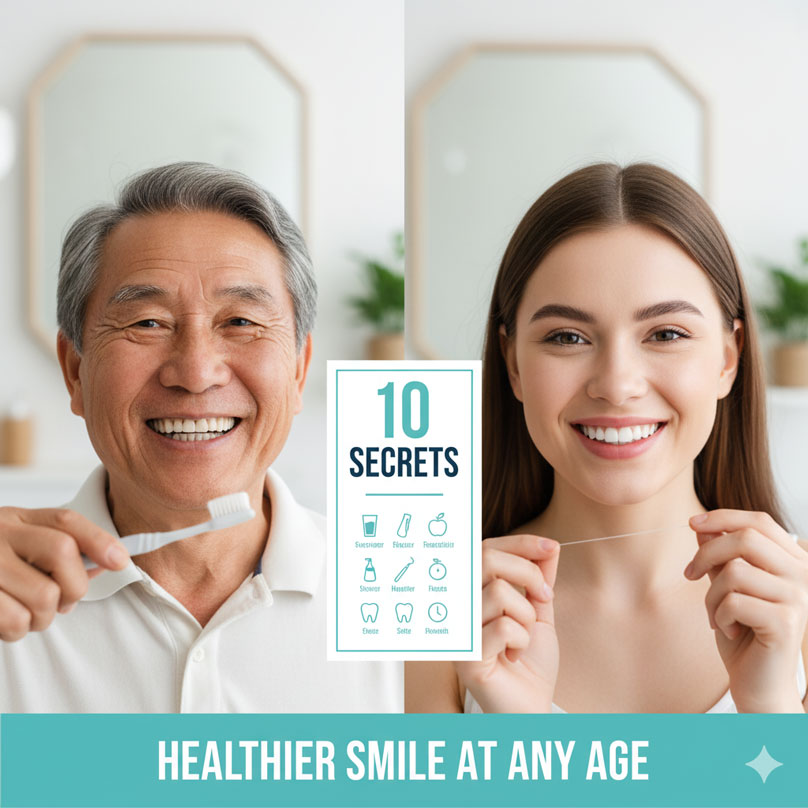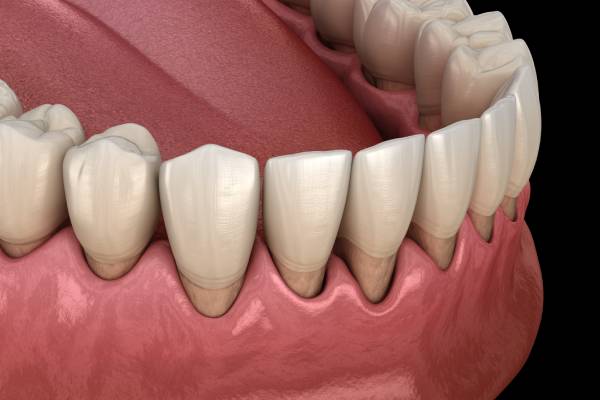10 Secrets to a Healthier Smile at Any Age
A bright, healthy smile is a timeless asset. It boosts confidence and plays a vital role in our overall well-being, no matter if we are 8 or 80. While it might seem like some people are just born with perfect teeth, the truth is that a great smile is built on consistent, simple habits. The journey to excellent oral health isn’t about complicated procedures; it’s about smart daily choices.
Whether you’re helping a child learn to brush, managing your own busy schedule, or caring for your smile in your senior years, the fundamentals remain the same. We’ve gathered ten essential secrets that can help everyone in your family achieve and maintain a healthier smile for life.

1. Master the Art of Brushing
Brushing your teeth is the foundation of good oral hygiene, but are you doing it correctly? It’s not just about going through the motions. Use a soft-bristled toothbrush and fluoride toothpaste. Hold your brush at a 45-degree angle to your gums and use gentle, circular motions. Brushing too hard can damage your enamel and irritate your gums.
Remember to brush for a full two minutes, twice a day. This ensures you clean every surface—outer, inner, and chewing. Set a timer or listen to a song to make sure you’re giving your teeth the attention they deserve. For kids, make it a fun game to see who can brush the longest!
2. Don’t Forget to Floss
Flossing is the one step people are most likely to skip, but it’s just as important as brushing. Your toothbrush can’t reach the tight spaces between your teeth and under the gumline. This is where plaque loves to hide, leading to cavities and gum disease.
Aim to floss at least once a day. Gently guide the floss between your teeth, curving it into a C-shape against each tooth. Slide it carefully beneath the gumline. If traditional floss is tricky, especially for children or seniors with dexterity issues, consider using floss picks, interdental brushes, or a water flosser.
3. Make Water Your Best Friend
What you drink has a huge impact on your dental health. Sugary drinks like soda, sports drinks, and sweetened juices create an acidic environment in your mouth that wears away enamel. Instead, make water your go-to beverage.
Water helps rinse away food particles and bacteria, and it keeps you hydrated, which is crucial for saliva production. Saliva is your mouth’s natural defense system, neutralizing acid and helping to repair early tooth decay. Drinking fluoridated tap water also provides an extra layer of protection.
4. Eat a Smile-Friendly Diet
A balanced diet is not just for your body; it’s for your teeth, too. Foods rich in calcium, like milk, cheese, and yogurt, help strengthen your enamel. Crunchy fruits and vegetables, such as apples, carrots, and celery, act like natural toothbrushes by scrubbing away plaque as you chew. They also stimulate saliva flow. Limit sugary and starchy snacks that feed the bad bacteria in your mouth.
5. Protect Your Teeth from Injury
Accidents happen, but you can take steps to protect your smile. If you or your children play contact sports, wearing a custom-fitted mouthguard is essential. A mouthguard can prevent chipped, broken, or even knocked-out teeth. It’s a small investment that can save you from pain and costly dental procedures down the road.
6. Avoid Using Your Teeth as Tools
Your teeth are designed for one job: chewing food. Using them to open packages, tear tape, or crack nuts can lead to chips, cracks, and fractures. Keep scissors and bottle openers handy and save your teeth from unnecessary damage. This simple habit can prevent a dental emergency.
7. Address Dry Mouth Promptly
Saliva is critical for a healthy mouth. As we age, or due to certain medications, dry mouth can become a common problem. A lack of saliva increases your risk for tooth decay and gum disease. If you experience persistent dry mouth, talk to your dentist. In the meantime, drink plenty of water, chew sugar-free gum, and avoid caffeine and alcohol, which can make it worse.
8. Consider Sealants for Extra Protection
Dental sealants are a fantastic preventive tool, especially for children and teens. A sealant is a thin, protective coating applied to the chewing surfaces of the back teeth (molars). These teeth have deep grooves that are hard to clean and are prime spots for cavities. Sealants create a smooth surface that seals out food and plaque. Ask your dentist if sealants are a good option for your family.
9. Kick Harmful Habits
Habits like smoking or using tobacco products are devastating to oral health. They stain your teeth, cause bad breath, and significantly increase your risk of gum disease and oral cancer. Similarly, frequent snacking on sugary foods throughout the day constantly exposes your teeth to acid attacks. Cutting out these habits is one of the best things you can do for your smile and your overall health.
10. Schedule Regular Dental Visits
Even with the best home care, professional cleanings and check-ups are non-negotiable. Your dental team can spot issues you can’t see or feel, like small cavities, early signs of gum disease, or other oral health problems. Regular visits allow us to remove hardened plaque (tartar) and polish away surface stains. We recommend a check-up every six months for most patients.
Your Smile is a Lifelong Journey
Taking care of your teeth is a commitment that pays off at every stage of life. By incorporating these ten secrets into your daily routine, you can protect your smile and keep it shining brightly for years to come. It’s never too early or too late to start building healthy habits. If you have questions or are ready for your next check-up, we’re here to help you on your journey to a lifetime of excellent oral health.




